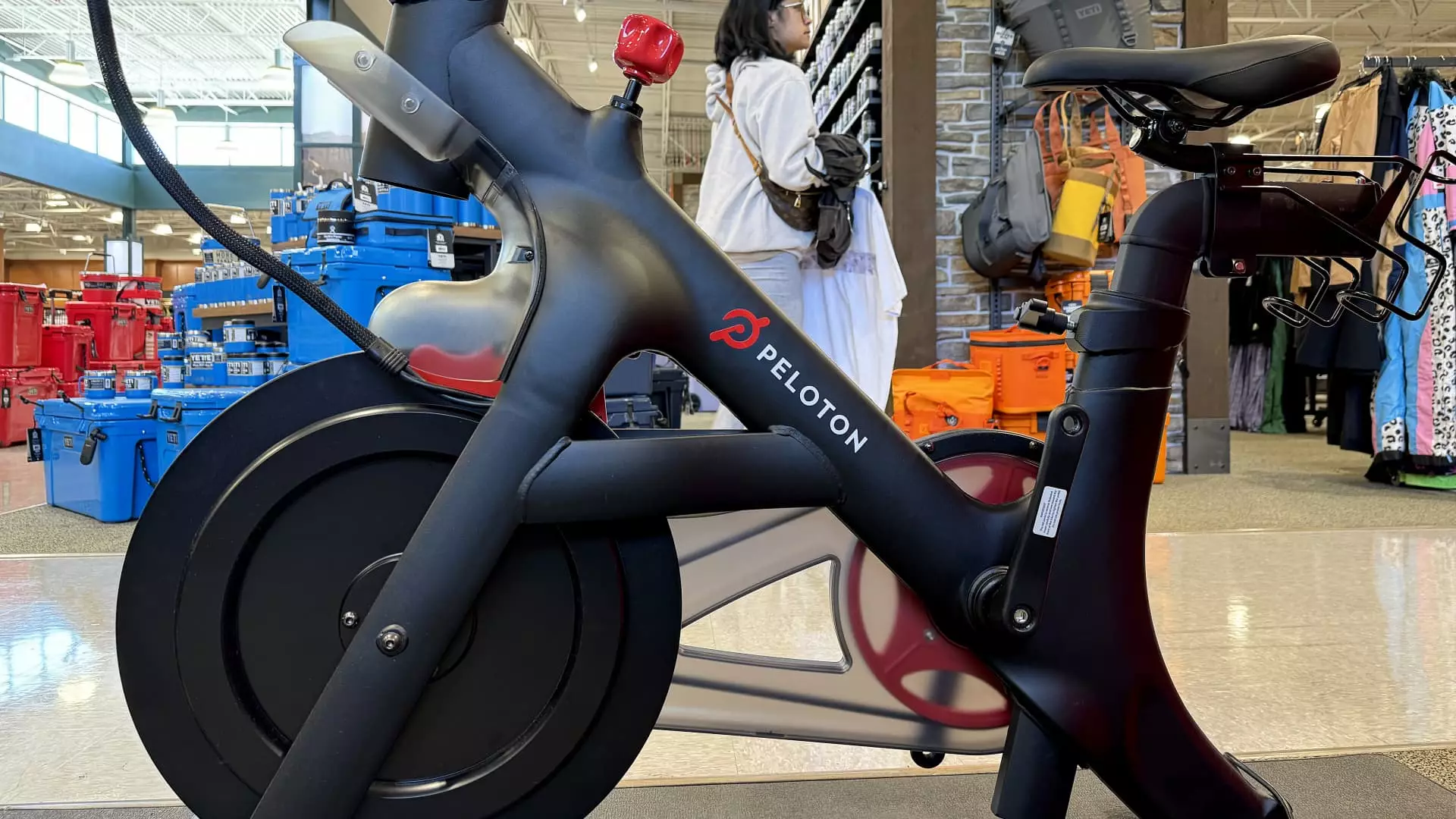In an era marked by sustainability and the smart consumption of resources, Peloton has moved to challenge the norms of its market by launching Repowered, a marketplace aimed at resale of its own used fitness equipment. While this move is undeniably savvy—given the mounting number of Peloton products gathering dust in homes across America—the initiative also lays bare some of the company’s deeper issues. With fitness culture shifting and personal commitment to wellness wading through the pandemic, the emergence of such a marketplace raises essential questions about not only the company’s trajectory but also the efficacy of its brand promise.
Peloton’s introduction of generative AI to assist sellers in determining prices is both innovative and contentious. Although the company assures users they will have the final say on pricing, the dependency on AI suggests a lack of trust in the community conversance of value, which could undermine the spirit of peer-to-peer commerce. Can anyone truly trust a bot to grasp the nuances of their treadmill’s worth based on criteria like age and condition? The tool risks dehumanizing what should be a community-centered approach, leaving users as mere data points in a largely transactional model.
The 70/30 Split: A Potential Boondoggle
At first glance, a 70% return for sellers may seem generous. However, when dissected, it’s crucial to reflect on the broader implications of this split in the profit margins. The remaining 30% is a lifeline for Peloton and its partner Archive, but it also reeks of an opportunistic play. With consumers increasingly frustrated by corporate greed, Peloton runs the risk of alienating loyal fans who may feel they are being nickel-and-dimed as they try to rid themselves of unwanted equipment. Such ventures should ideally empower users, not profit off their reluctance to continue using products they once revered.
Furthermore, the discount offered to sellers which incentivizes new purchases is a clever tactic, yet also a sign of desperation. Instead of focusing on retaining existing customers and enhancing their experience, Peloton appears to be relentlessly pursuing new revenue streams. This illustrates a fundamental insecurity lurking beneath the surface of this innovative approach—the realization that sustainable growth may not solely rely on securing subscriptions, but rather needs to consider long-term relationships with their customers.
A Flooded Market: Competitive Pressures
Repowered is not just setting sail in an unchallenged sea; it launches amid stiff competition from platforms like Facebook Marketplace and emerging startups such as Trade My Stuff. While Peloton’s direct engagement in the resale market provides a semblance of control and brand curatorship, it does just as much to raise the stakes against competitors who might have far greater agility and established networks. Numerous sellers may prefer platforms that specialize in used goods, as they can often offer better rates and greater reach without the overhead associated with a corporate model.
This competitive pressure highlights the vulnerability that Peloton faces in a rapidly evolving market. The company’s presence in the secondary market has, to some extent, merely been riding the wave of societal changes toward thrift and sustainability. Yet, they must not confuse increased engagement with actual brand loyalty, as disenchanted former customers, who viewed their bikes as glorified clothes racks, could swing back into buyer mode on any platform but Peloton.
Walking a Tightrope of Innovation and Trust
The challenge for Peloton will be to navigate this new venture’s pitfalls while also elevating the brand’s perceived value. Contributions in convenience and sustainable practices are commendable, yet these efforts must not come at the cost of consumer trust or community cohesion. The company finds itself at a crossroads: succeed with a promising resale platform or risk further alienation as they endeavor to become a market leader once more.
Having watched other companies stumble while trying to recalibrate their business models amid societal shifts, it’s imperative Peloton remains vigilant. Trust isn’t easily won back, and every misstep could feel like a hammer to an already fragile reputation. In embarking on Repowered, the question isn’t just about what they can profit from, but rather how they can evolve into a marketplace that is genuinely focused on their customers’ welfare, longevity, and connection—a mission that extends well beyond simply turning a profit.

